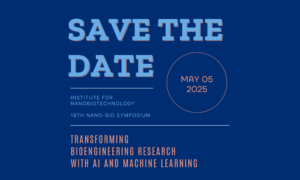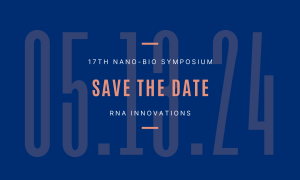
All are welcome to attend our 17th Nano-Bio Symposium on RNA Innovations. All are welcome to attend our 17th Nano-Bio Symposium on RNA Innovations. Innovations in RNA biology and therapeutics show immense potential in transforming the landscape of medical research and biotechnology development. RNA, particularly messenger RNA (mRNA), has emerged as a groundbreaking tool and is revolutionizing the way researchers and clinicians approach medicine. This year’s symposium will explore the unprecedented possibilities of RNA innovations and its novel therapeutic avenues. We welcome experts, researchers, and enthusiasts to join us as we converge to share knowledge, exchange ideas, and delve into the latest advancements so that our collective efforts advance the full potential of RNA-based technologies and shape the future of healthcare and biomedicine.
This is event will feature guest speakers and a poster competition with a reception. Registration is required.

The Johns Hopkins Institute for NanoBioTechnology is accepting donations for BARCS, a non-profit animal shelter and pet adoption center in Baltimore.
BARCS is an open admission shelter, granting refuge to every abandoned, neglected, abused, lost, or surrendered animal that comes through their doors. No matter the circumstance, they do not turn away an animal in need of shelter, food, medical care, and a loving touch. Yearly, this equates to 11,000-12,000 dogs, cats, kittens, puppies, and even wildlife and exotic animals that need care and placement.
Please only purchase items from BARCS wish list. Below is a list of some of those items.
Drop off donations at the institute’s business office, Shaffer Hall 103 or contact to Gina Wadas at ginawadas@jhu.edu to arrange pick up.
Toys & Enrichment
Kongs
Nylabones
Scratch boxes for cats
Feather wands
Chuck-it balls
Veterinary Care
Latex and non-latex gloves
Triple antibiotic ointment
Digital thermometers
Kennel care
Stainless steel no-flip bowls
Baby wipes
Cat brushes
Kitten nursing bottles
Food & Treats
Dog/puppy food: dry and wet (unopened)
Cat/kitten food: dry and wet (unopened)
Bully sticks
Smooth peanut butter
Full Moon brand dog treats (Training Size)
Cleaning Supplies
Paper towels
Dawn dish detergent
Lint rollers
Plastic watering cans
Frameshift is an academic initiative that combines an entrepreneurial spirit and translational growth environment to develop new therapies rapidly using immunoengineering technologies. This initiative showcases innovative biological advances at the intersection of immunology, engineering, and medicine.
This in-person three-day event that will teach trainees about Johns Hopkins Translational Immunoengineering technologies and potential applications, provide hands-on experience with relevant techniques, and develop new ideas about the application of these technologies in a team-based, hackathon-style competition. The workshop will be split into two portions. The first is seminars and hands-on lab demonstrations where participants will experience how to synthesize and use core TR&D platforms. The second is an entrepreneurial showcase where participants create and pitch a novel immunoengineering solution using a combination of the TR&D technologies.
Target Audience
Postdoctoral scholars and candidates pursuing research-intensive and clinically focused advanced degrees, including but not limited to those in Ph.D., M.D., and PharmD granting programs.
Dates
Event: July 22 – 24, 2024
Registration deadline: June 30, 2024
Location
Johns Hopkins School of Medicine
Prizes
TBD
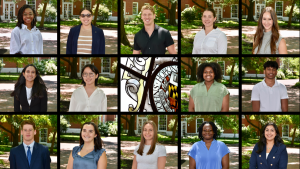
Every summer the INBT welcomes undergraduate students to the Nanotechnology for Biology and Bioengineering Research Experience for Undergraduates (REU) program. Students spend 9-10 weeks with INBT faculty and mentors heavily engaged in research projects ranging from developing cancer therapies and diagnostic tools to using regenerative engineering to heal the body. They also participate in professional development training, networking activities, and explore Baltimore and other surrounding cities. We welcome you to join us to see presentations by our 2024 summer students as they showcase their research projects.
This event is hybrid and space is limited in the Shriver Clipper Room. If space is unavailable please join by Zoom.
Join Zoom Meeting
https://wse.zoom.us/j/92127901049
Meeting ID: 921 2790 1049
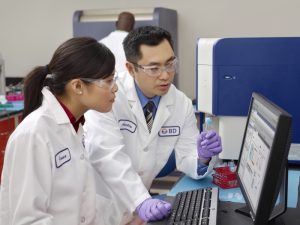
The Institute for NanoBioTechnology collaborates with major industry partners to offer a Cooperative (Co-Op) Education program for masters of science in engineering (MSE) students. The program provides MSE students career training while employed for six months where they gain work experience, network, and build technical and non-technical skills that prepares them for a competitive job market. Students receive a salary from the company while employed and college credit for completing the requirements.
Attend our information session to learn more about the program. Refreshments will be provided.

The Institute for NanoBioTechnology is once again participating with the Johns Hopkins community in the Vernon Rice Memorial Holiday Turkey Program, which supports families in the Baltimore community.
Make a meaningful impact this holiday season by participating in the Vernon Rice Memorial Turkey Drive, the university’s annual initiative to support families in need. A $45 donation provides a turkey and basket of locally sourced vegetables. Hopkins is partnering with eight community organizations to distribute the food to community residents on November 22.
Last year, over 600 families received meals and essential personal care items through this program. This year, Hopkins aims to reach even more families. Please consider donating and sharing this important effort with others to help us make a difference. Make your donation today and learn more about the program. You can also read this story about the program by the Johns Hopkins Hub.
Interested in volunteering to distribute foods on November 22? Register today!
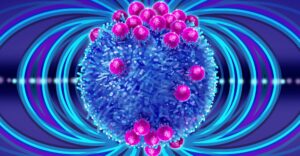
The Advances in Immunoengineering: Fundamentals and Cutting Edge Advances workshop is hosted by Johns Hopkins Translational Immunoengineering. The workshop meets twice a week for three weeks and participants are eligible for CME credit. The workshop is also offered as a one-credit course to Johns Hopkins students
The immunoengineering field is transforming cancer, autoimmunity, regeneration, and transplantation treatments by combining the diverse and complex fields of engineering and immunology. There is a significant need to train engineers in immunology and immunologists in quantitative engineering techniques. Moreover, there is a need to bridge basic immunological discoveries with advances in clinical application. This workshop features 12 speakers that will review immune system fundamentals and components, engineering strategies to modulate the immune system, and clinical applications.
After attending this workshop, the learner will demonstrate the ability to:
– Review the fundamentals and recent discoveries in the function of the immune system.
– Identify engineering strategies to manipulate the immune system.
– Describe the clinical applications of immunoengineering.
The full schedule, speakers, topics, and registration information are available on JH-TIE’s website.
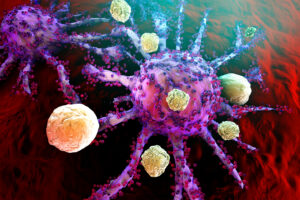
Speaker
Sindy Tang, PhD, Associate Professor of Mechanical Engineering at Stanford
Talk Information
Patient-derived tumor organoids have emerged as promising models for predicting personalized drug responses in cancer therapy, but they typically lack immune components. Preserving the in vivo association between tumor cells and endogenous immune cells is critical for accurate testing of cancer immunotherapies. Mechanical dissection of tumor specimens into tumor fragments, as opposed to enzymatic digestion into single cells, is essential for maintaining these native tumor-immune cell spatial relationships. However, conventional mechanical dissection relying on manual mincing is time-consuming and irreproducible. This study describes two microdissection devices, the µDicer and µGrater, to facilitate the generation of intact tumor fragments from mouse B16 melanoma, a common model of human melanoma. The µDicer- and µGrater-cut tumor fragments were used to generate air‒liquid interface (ALI) organoids that co=preserve tumor cells with infiltrating immune subsets without artificial reconstitution. The µDicer, consisting of a hexagonal array of silicon microblades, was employed to investigate the effect of organoid size. The viability of ALI organoid immune cells appeared insensitive to organoid sizes exceeding ~400 µm but diminished in organoids ~200 µm in size. The µGrater, consisting of an array of submillimeter holes in stainless steel, was employed to accelerate dissection. For the samples studied, the µGrater was 4.5 times faster than manual mincing. Compared with those generated by manual mincing, ALI organoids generated by the µGrater demonstrated similar viability, immune cell composition, and responses to anti-PD-1 immunotherapy. With further optimization, we believe these devices hold potential for integration into clinical workflows to support the advancement of personalized cancer immunotherapy.

The immunoengineering field is transforming cancer, autoimmunity, regeneration, and transplantation treatments by combining the diverse and complex fields of engineering and immunology. This symposium will highlight some of the latest advances in immunoengineering with a focus on translational aspects of the field. It is also a celebration of Johns Hopkins Translational ImmunoEngineering Center renewal and its accomplishments.
Keynote Speakers
Michel Sadelain, MD
Inaugural Director of the Columbia Initiative in Cell Engineering and Therapy
Robert Seder, MD
Chief, Cellular Immunology Section, Vaccine Research Center, National Institute of Allergy and Infectious Diseases, NIH

